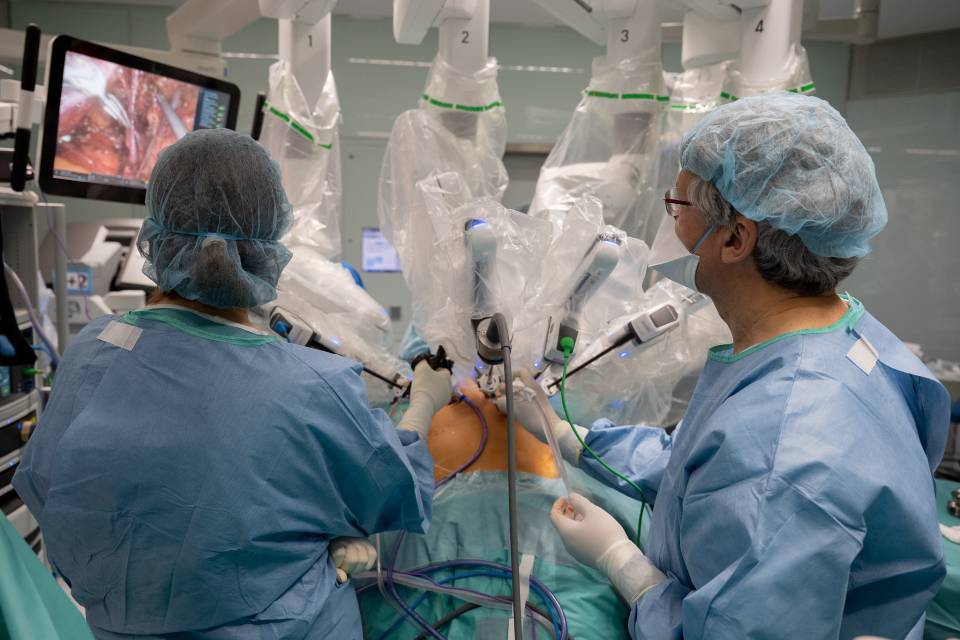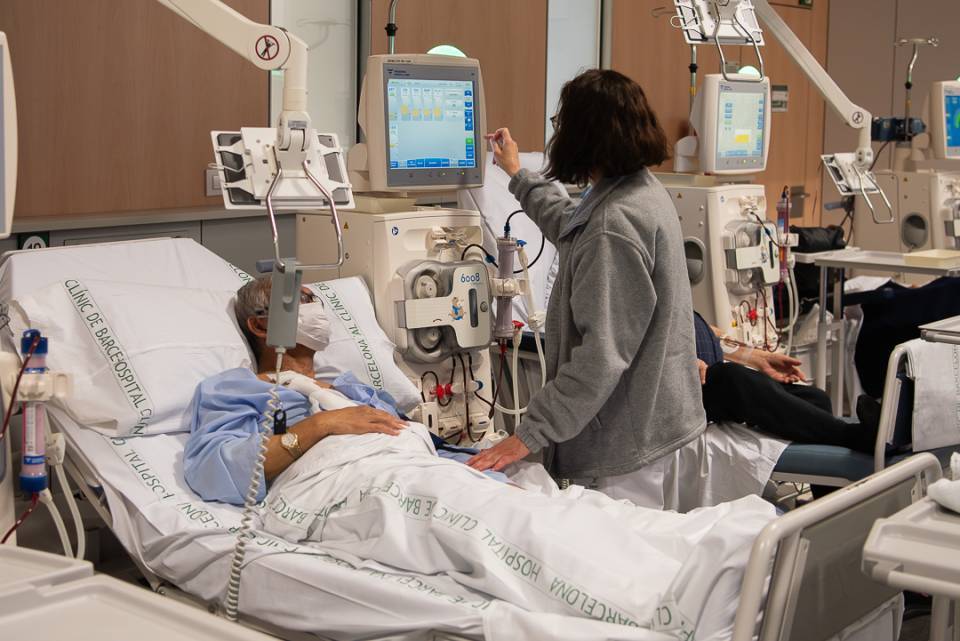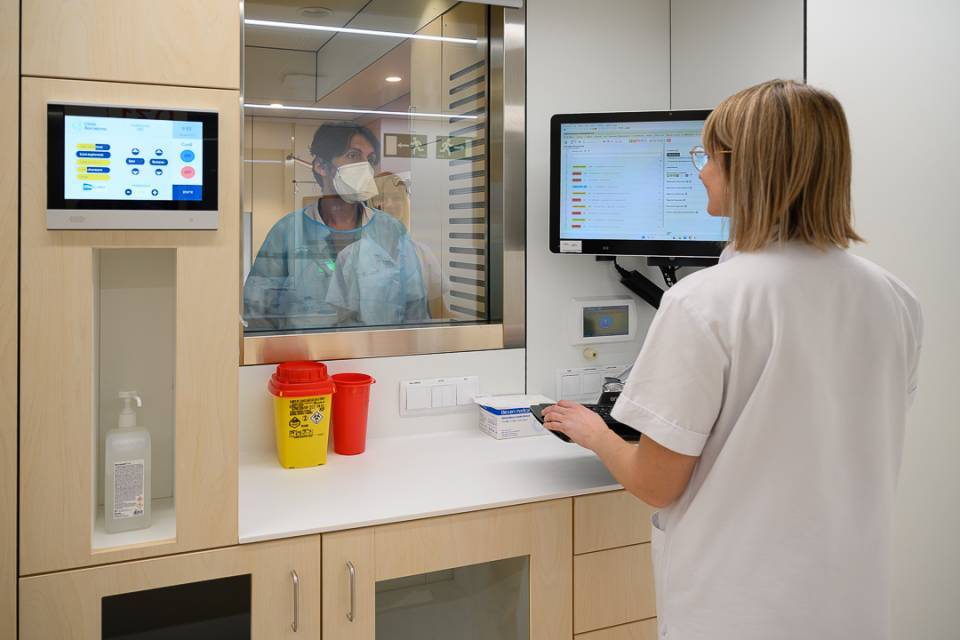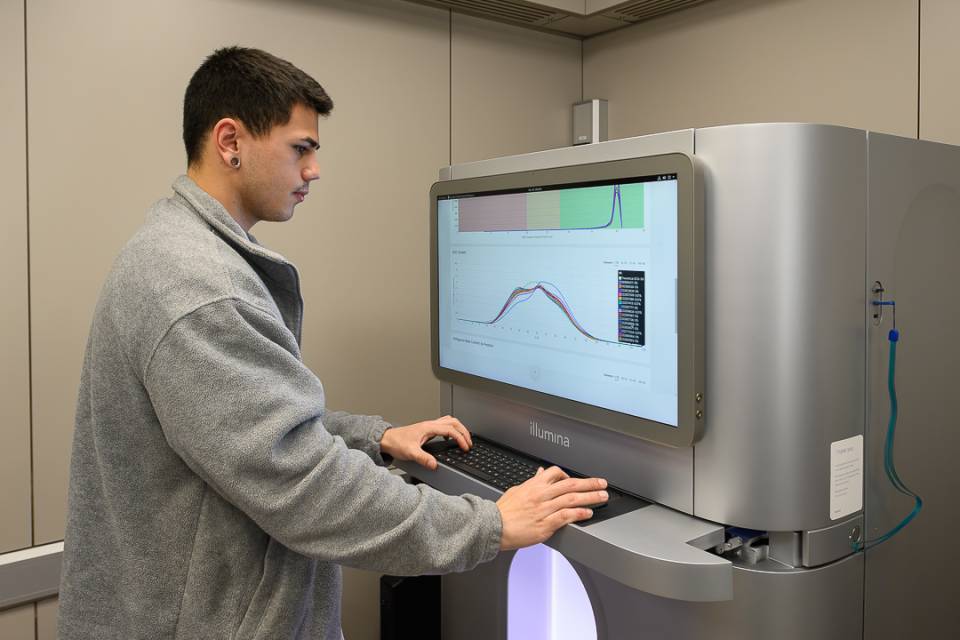The aim is for robotic surgery to account for 10% of all surgeries performed under general anaesthetic at the hospital by 2030. Robotic surgery leads to fewer complications for patients and provides greater precision for professionals.
The hospital currently has two da Vinci Xi robots (the first one began to be used in 2014, and the second in 2020), one ROSA robot for knee and hip replacement surgeries, one Corin robot for prosthetic surgeries, and one neuromate robot for deep brain stimulation procedures.
Robotics improve the precision and safety of surgical procedures. This type of surgery allows for minimally invasive procedures to be performed, reducing bleeding, postoperative pain and recovery time for patients. Moreover, thanks to high-definition 3D vision, and articulated instruments with a great range of movement, surgeons can perform operations with more precision and a lower risk of complications. This means a shorter hospital stay and allows patients to return to their daily life more quickly, optimizing hospital resources and improving the efficiency of the healthcare system.
Future robotic surgery programmes in many specialties
The Hospital Clínic Barcelona will expand the use of robotic surgery in various specialties in 2025. At the Urology Service, headed by Dr Antonio Alcaraz, the plan is to perform surgeries involving partial nephrectomies and reconstructive surgeries. The Cardiovascular Surgery Service, headed by Dr Manel Castellà, plans to expand its activity in heart valve repair surgery and coronary surgery programmes. Meanwhile, the Gynaecology Service, led by Dr Berta Díaz, plans to carry out robotic cancer and benign pathology surgeries in the near future.
The General and Digestive Surgery Service, led by Dr Manel Pera, will start robotic procedures in liver, bariatric and abdominal wall surgeries. The Thoracic Surgery Service, led by Dr Ricard Ramos will basically perform robotic cancer surgery, whilst the Ear, Nose and Throat (ENT) Service, led by Dr Manel Bernal will perform transoral robotic cancer surgery, cervical remote access surgery, and surgery to treat sleep apnoea.
Commitment to training in robotic surgery
The Hospital Clínic Barcelona reaffirms its commitment to innovation and excellence with a strong focus on training in robotic surgery, establishing itself as a leading centre in this field. In collaboration with the Faculty of Medicine and Health Sciences at the University of Barcelona (UB), a new subject has been introduced into the Medicine degree programme, enabling future professionals to become familiar with this advanced technology very early on. In addition, the hospital has a specific simulation room, where students and professionals can train in a safe environment before carrying out real procedures. Work is also being carried out on the implementation of a cross-disciplinary training programme for residents, ensuring that all specialists in training acquire knowledge and skills in robotic surgery, regardless of their specialty. In parallel, training courses are already being offered to other healthcare professionals, thus expanding the impact of this technology in the healthcare system and promoting constant updating in the most advanced surgical techniques.
According to Dr Isabel Vilaseca, director of the Surgical Area, “with the consolidation of robotic surgery at the Clínic, we are not just improving care for our patients with less invasive and more efficient techniques, but also reinforcing our commitment to training, ensuring that both current and future professionals are prepared for working with the most advanced technology in the surgical field”.
According to Dr Antonio Alcaraz, head of the Urology Service, and head of Surgical Strategy at the Clínic, “we must continue to be innovators and pioneers in this field. The future of surgical activity at the Clínic has to involve remote surgery, augmented reality guidance, and the skills and help that artificial intelligence can provide throughout the entire process”.




